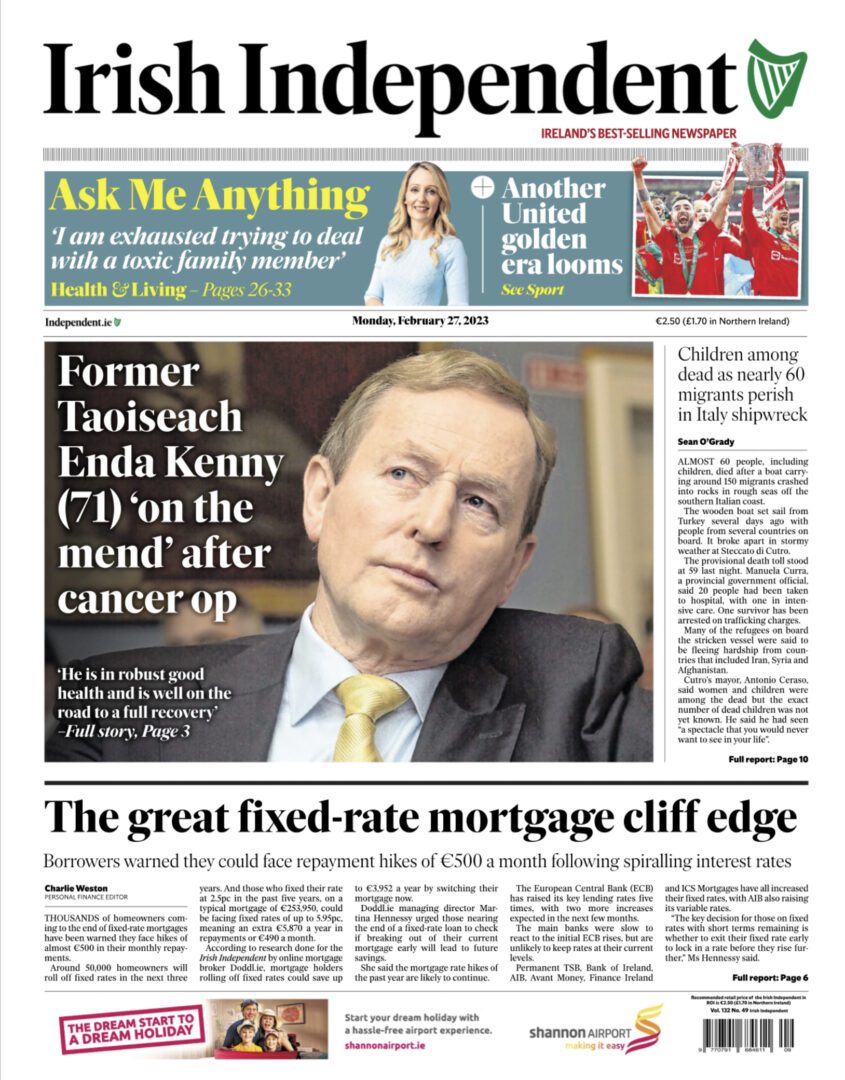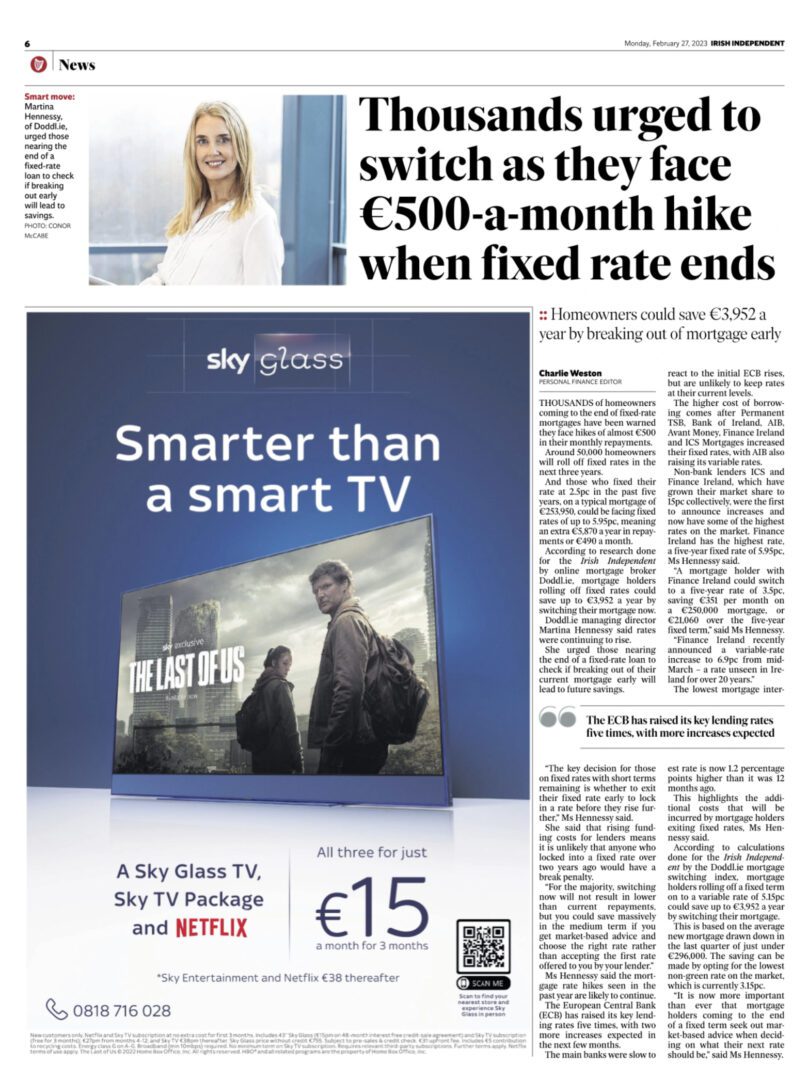Homeowners whose fixed rate mortgages are coming to an end could face an immediate payment hike of up to €489 a month, the doddl.ie Mortgage Switching Index reveals.
With €12billion worth of home loans rolling off fixed rates in the next three years, an estimated 50,000 homeowners whose deals expire will be emerging into a vastly different rate environment.
Those who fixed their rate at 2.5pc on the average mortgage in the past five years of €253,950, could be facing fixed rates of up to 5.95pc, costing them an extra €5,870 per annum.


As rates continue to rise, doddl.ie Managing Director, Martina Hennessy, has urged mortgage holders who are nearing the end of their current fixed rate to investigate whether exiting their current fixed rate early might lead to future savings.
“The key decision for those on fixed rates with short terms remaining is whether to exit their fixed rate early to lock in a rate before they rise further,” said Ms Hennessy.
“Due to increasing funding costs it is unlikely that anyone who locked into a fixed rate over two years ago would have a break penalty.
“For the majority, switching now will not result in lower than current repayments, but you could save massively in the medium term if you get market-based advice and choose the right rate rather than accepting the first rate offered to you by your lender.
“The significant upward movement on interest rates in the last twelve months is likely to continue, and while the pillar banks were slow to move, I expect their rates won’t stop at their current level.”
The non-bank lenders such as ICS and Finance Ireland, who have grown in market share to 15pc collectively, were the first to announce increases and now have some of the highest rates on the market.
Finance Ireland have the highest rate on the market, a five-year fixed rate of 5.95pc.
“A mortgage holder with Finance Ireland could switch to a five-year rate of 3.5pc, saving €351 per month on a €250,000 mortgage or €21,060 over the five-year fixed term,” said Ms Hennessy.
“Finance Ireland have recently announced a variable rate increase to 6.9c from mid-March – a rate unseen in Ireland for over 20 years.”
The lowest mortgage interest rate on the Irish market is now 1.2pc higher than it was 12 months ago, highlighting the additional costs that will be incurred by mortgage holders exiting fixed rates.
The Index reveals that mortgage holders rolling out of fixed rates could save up to €3,952 per annum by switching their mortgage.
This is based on the average new mortgage draw down in the last quarter of just under €296,000 and a roll out variable rate of 5.15pc versus the lowest non-green rate on the market – currently 3.15pc.
The index is based on the average mortgage drawn down for new lending in both the first-time buyer and second-hand mover markets as at Q4 2022.
“It is now more important than ever that mortgage holders coming to the end of a fixed term seek out market-based advice when deciding on what their next rate should be,” said Ms Hennessy.
“Mortgage switching increased by 128pc in value in the last year, proving that the Irish mortgage holder has become more aware of the benefits of switching their mortgage.
“Normalising mortgage switching is key to market discipline which is more important than ever given reduced lenders in 2023 following the exit of both KBC Bank and Ulster Bank.”
